How to teach an old dog new tricks? Engage their brains as well as their bodies
Long walks might be good for tiring your dog out, but, as Katy Birchall discovers, brain games are equally as important when it comes to relieving boredom, anxiety and restlessness for man’s best friend.
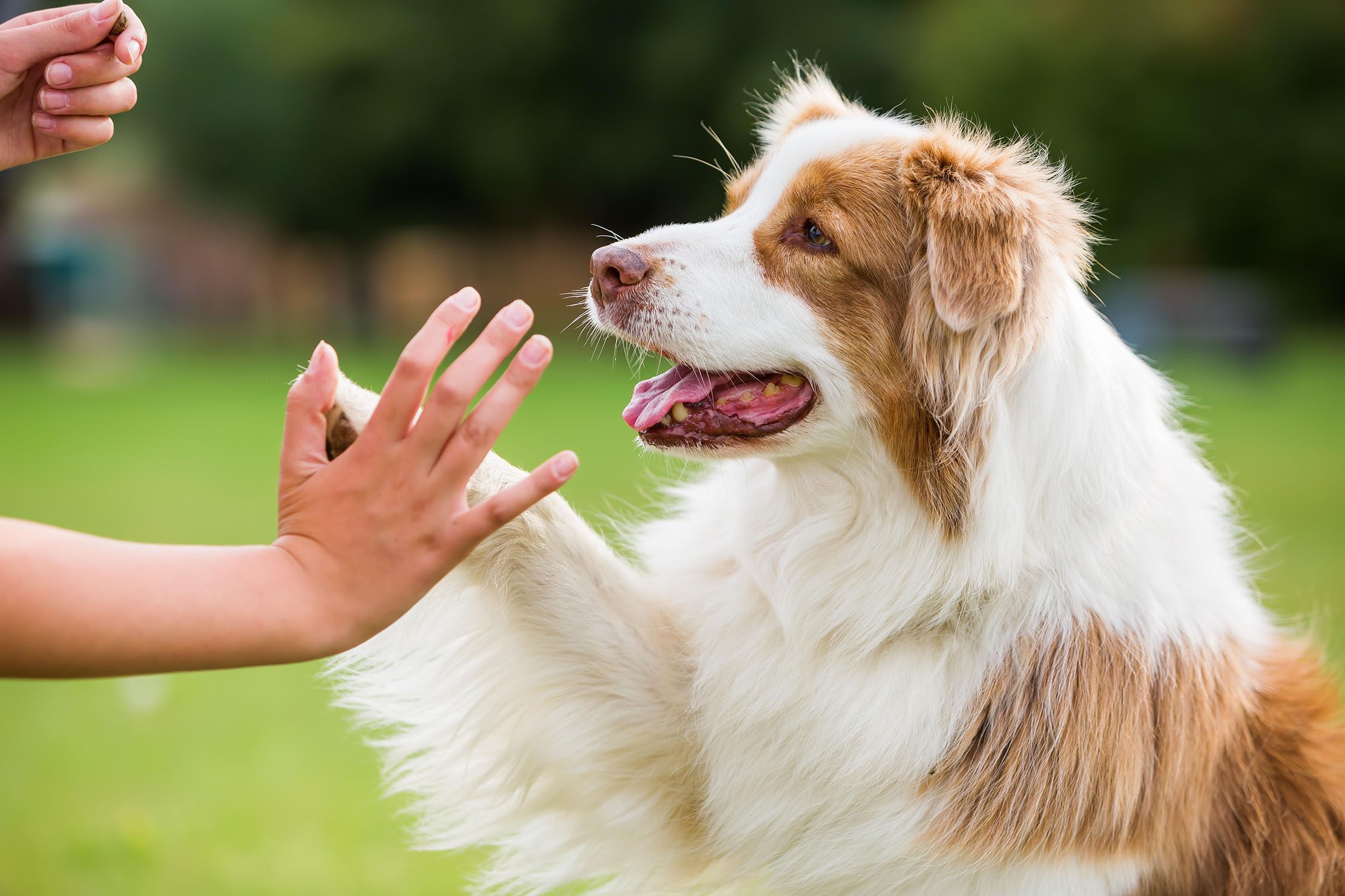

In the same way that we challenge ourselves, it’s important that we challenge our dogs,’ explains Tamsin Durston of the Dogs Trust’s canine-behaviour team. ‘They’re intelligent and social creatures, so without mental stimulation can become bored, frustrated and restless. A problem-solving task enriches your dog, directing its energy into something positive.’
When it comes to canine companions, walks are obviously essential, but studies have shown that keeping their brains busy is equally as important. Brain games encourage the natural skills and senses of our four-legged friends, as well as preventing anxiety and boosting their confidence, not to mention how much all that brain work tires them out.
‘Physical exercise is only half of the equation when it comes to keeping your dog healthy and happy,’ confirms Bill Lambert, head of health and welfare at the Kennel Club. ‘It’s vital to keep your dog’s mind interested and active, as bored dogs can develop behavioural issues.’
Dogs of all ages, whether they’re working or not, can benefit from mentally engaging exercises, and space needn’t be an issue — brain games can be played anywhere, from a kitchen to a back garden or a paddock. There really is no excuse not to take a stab at teaching man’s best friend some brand new tricks.
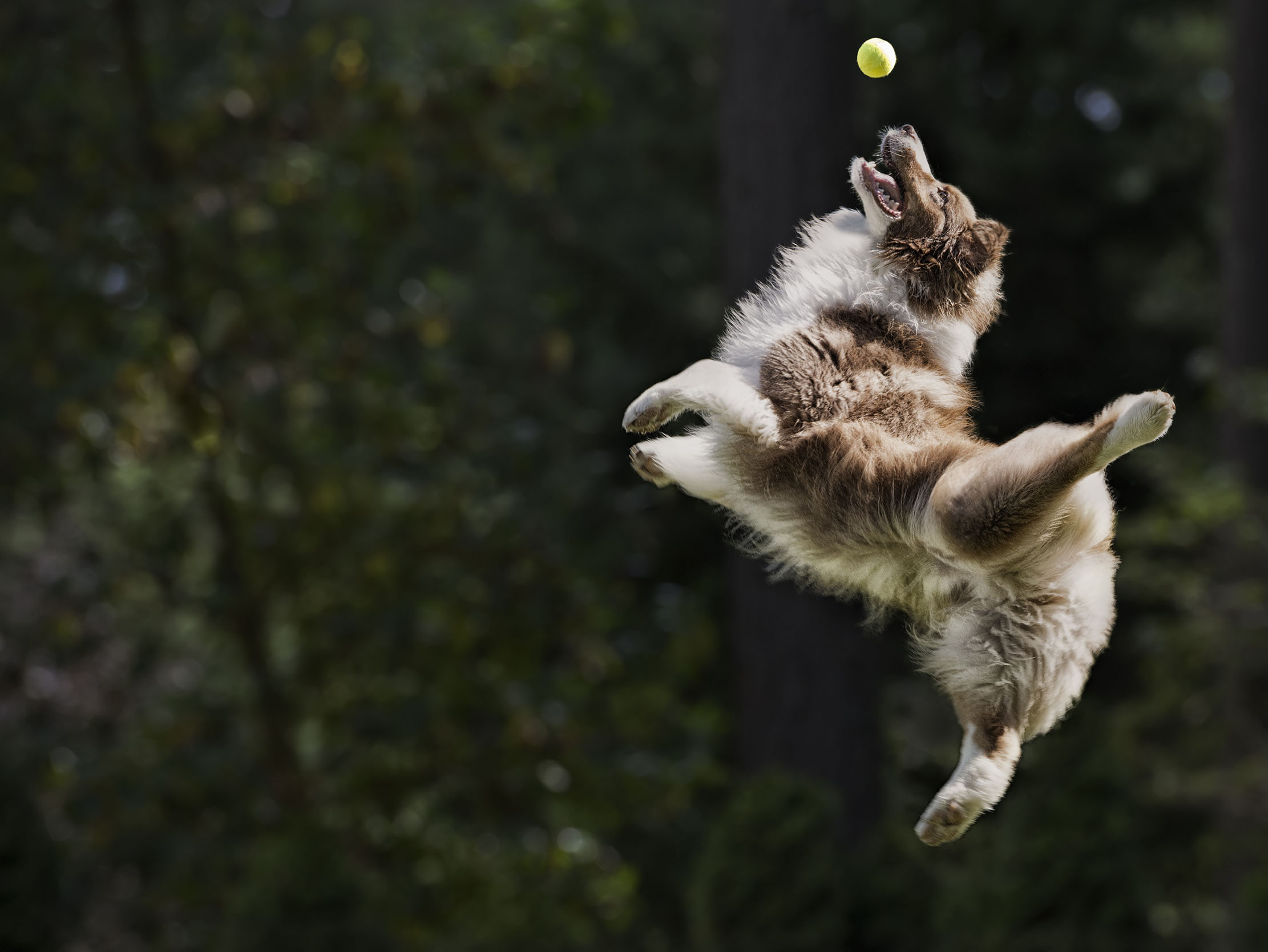
‘A simple game to start off with is taking two items, such as cardboard boxes, and teaching your dog to weave round them in a figure of eight,’ suggests Tamsin Durston.
‘If your dog is young, fit and healthy, you can build an obstacle course in the garden — a broom balanced on two flower pots makes a nice jump. Teaching a dog to high five is a lot of fun. Hold a treat in a closed fist in front of your dog. They might sniff or lick your hand at first, but when they paw at it, say your marker word and release the treat.
‘Repeat until they’re doing it every time, then attempt it with an empty hand, offering them the reward from the other one. Gradually move your hand higher and eventually hold your hand out in a high-five gesture.’
Sign up for the Country Life Newsletter
Exquisite houses, the beauty of Nature, and how to get the most from your life, straight to your inbox.
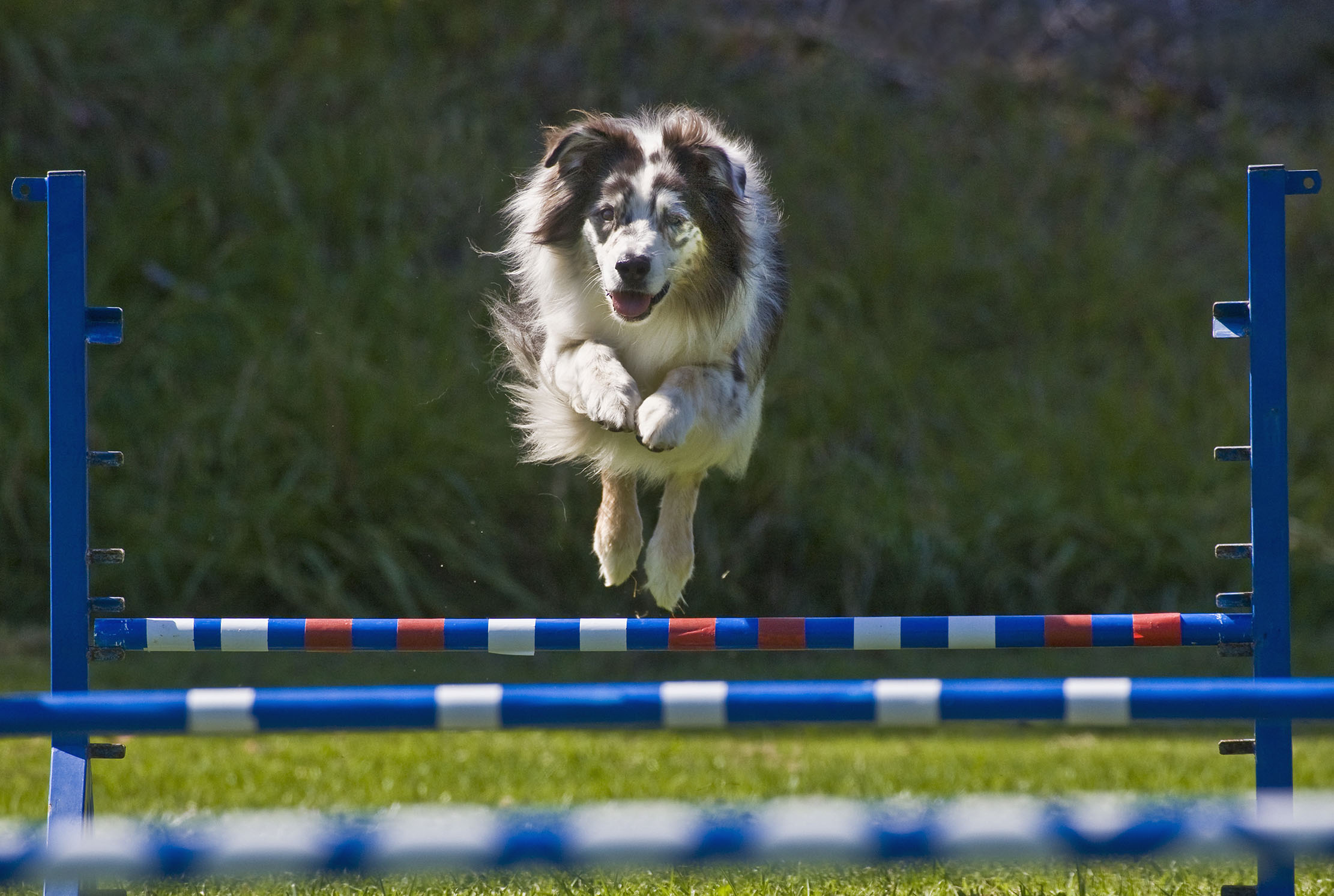
Nathalie Ingham, canine behaviourist and training manager at Battersea, emphasises that games at home are a fantastic way to keep dogs occupied and entertained in a controlled environment: ‘Brain games shouldn’t substitute their usual exercise, but work in conjunction with it. They can be anything that gets your dog thinking, from basic training to new tricks.’
As most dogs are motivated by food, Nathalie recommends tasks that incorporate their daily food allowance. ‘If they’re on dry kibble, encourage them to work for their food by scattering it on the floor or in the garden so they have to use their nose to find it.
‘Another way to keep your dog entertained is to grab a cardboard box and fill it with anything that’s safe for your dog to tear up, such as scrunched-up balls of paper. Scatter some dry food in there or pop in a favourite toy, then let your dog dive right in and destroy everything. That one is very popular with terriers,’ she laughs.
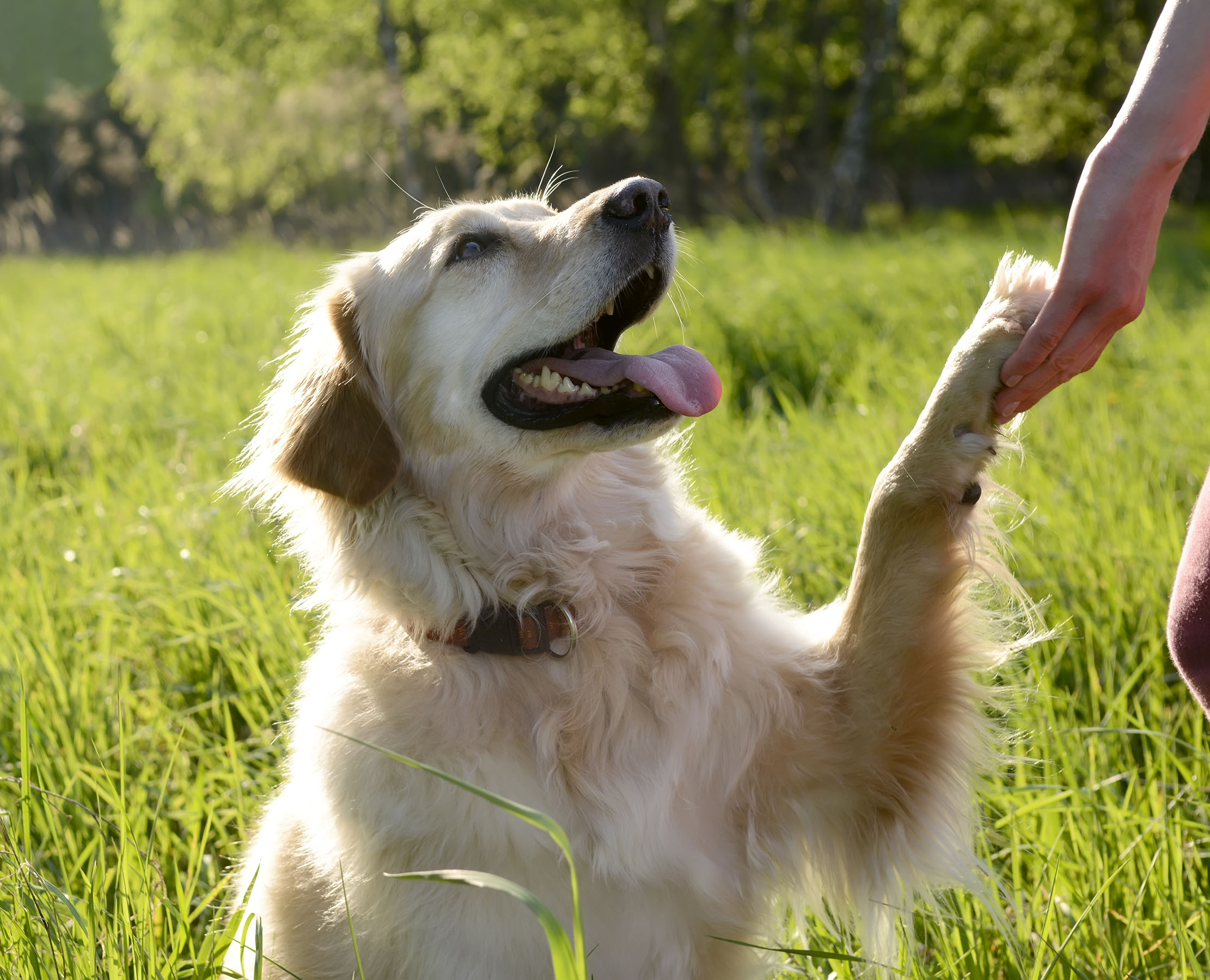
Working dogs can benefit from training closer to home — in Gundogs: Training and Field Trials, the late Peter Moxon acknowledges the advantages of conducting early lessons on a secluded lawn: ‘Teaching a puppy in a wood, or places where there are obstacles, is trying as the puppy may often run off and hide or investigate the cover, instead of paying attention to the work and the teacher.’
Paul Harper from Redbeards Gundogs recommends hiding tennis balls for your dog to find — a fun, positive hunting exercise that can work in any kind of space. ‘You can always put the ball a bit higher off the ground, using a tree stump or branch,’ he suggests. ‘If you help your dog by guiding them the right side of the wind, you can watch them catch the scent and see their instinct kick into gear — it’s lovely to watch them work it out.’
Paul adds that home is the perfect place to practise teaching your gundog to do simply nothing. ‘Most dogs aren’t born to sit still, especially cocker spaniels,’ he smiles. ‘Get your dog to sit longer and longer without moving, rewarding them with praise. Gradually build on that lesson until you can sit them down, go to make a cup of tea and find they haven’t moved when you come back.’

Patience training can be incorporated into family scenarios, explains Ben Randall, of Beggarbush Gundogs. ‘There are plenty of wonderful opportunities to train dogs at home and constantly build up a relationship of trust — if my boys go out to pass around the rugby ball, they take two or three dogs. The dogs have to sit and wait, watching them play, and at the end, they get lots of praise and a reward of a retrieve. They’ve earned it. Come September, when the dog has to sit at the peg during a drive, they know to wait calmly and they’ll get their reward.’
Ben emphasises cultivating patience and trust in the home environment first, whether or not your dog is destined for the shooting field: ‘You’re building those foundations from the start and once you have control at home, you can take it from there. Don’t let your dog barge past you through a door — ask them to sit before walking through and then call them to you. Small things like that create a well-behaved dog around you and the family.
‘It makes a huge difference. I also teach commands such as “leave” and recall around their feeding times — you couldn’t get a more positive time to teach a dog vital lessons.’
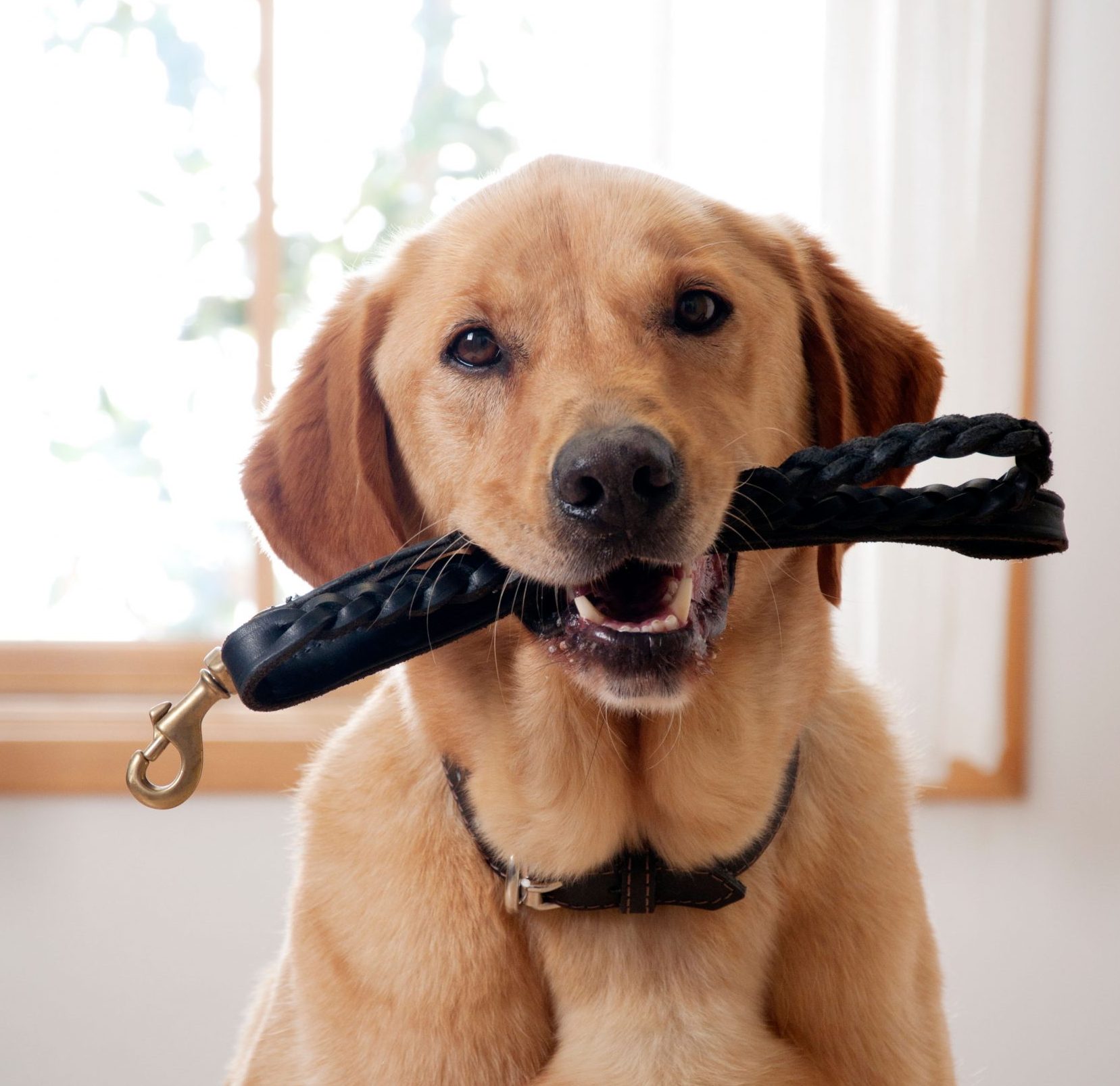
Tracy Corbin of Corbinsbere Gundogs (a recent Gundog Trainer of the Year) agrees that mentally stimulating tasks at home form a key part of training. ‘One thing that you can do is work on the heel position,’ she advises. ‘Teach your dog to heel at your side as you walk a circle on the spot. First, sit them down and with a treat, get interest on the dog’s nose up to your side. Turn your dog, guiding them around and ask them to sit again. Reward on that sit with the treat, before turning again and repeating.
‘Another of my favourites is the unexpected recall — if my dogs are out in the garden, I suddenly call them and they have to come and find where I am, receiving a good reward when they do. In that moment when I call, they’re not thinking about me. It teaches them to listen when I’m not right there in front of them.’
There is one more great advantage to brain games, Tracy concludes: ‘Whether you’re teaching them tricks, tasks or commands, their focus is completely on you. It’s wonderful to spend that time engaging with your dog.’

How to choose the perfect dog to fit your lifestyle, family and home
Those who grew up with dogs probably already know which breed they want to own, and have done for years.
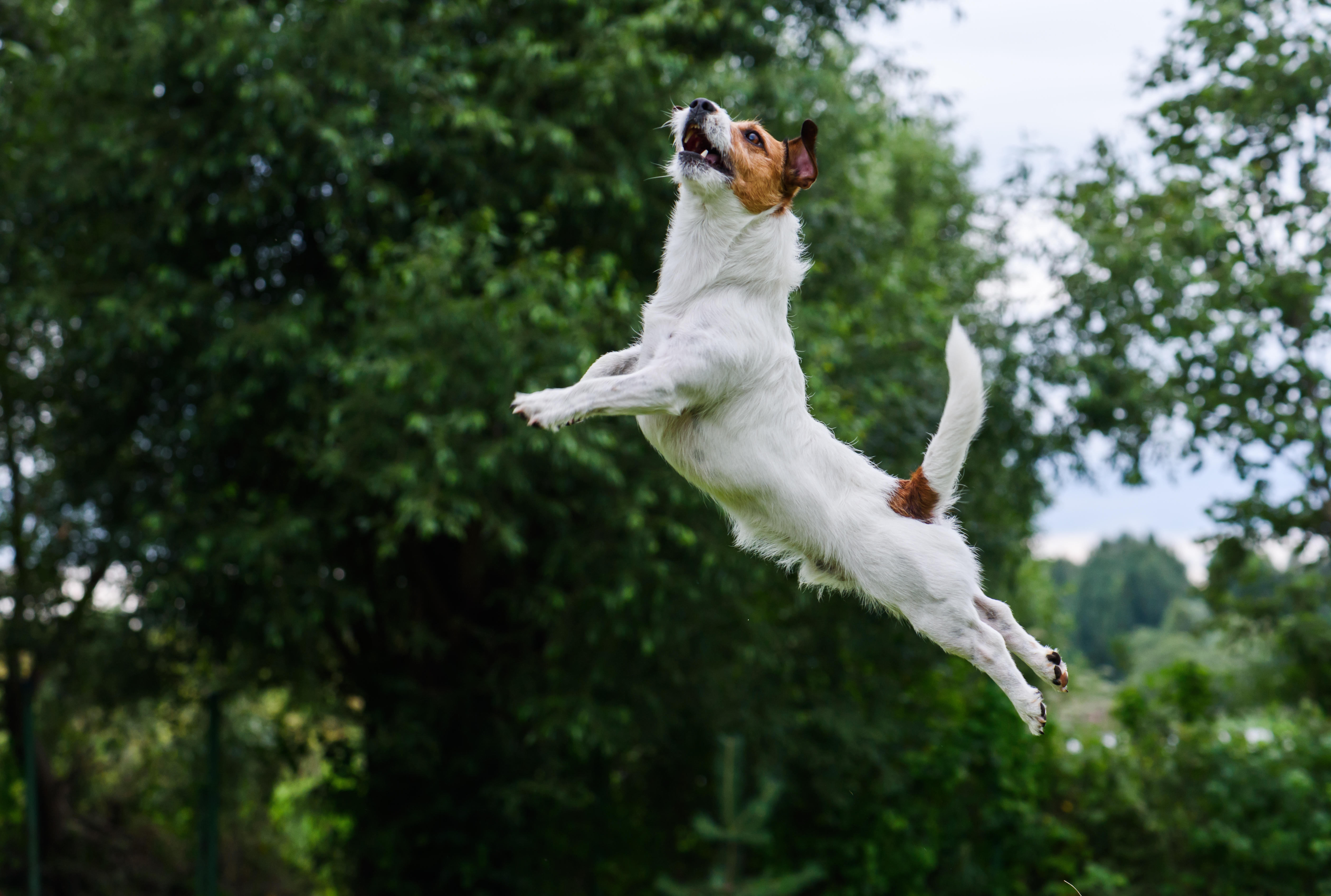
Credit: Alamy
Expert dog training tips to help you stop canine cabin fever in lockdown, from a home-made agility course to tasty treats with a difference
Even man's sturdy best friend needs a paw to hold during the onslaught of a pandemic. Rosie Paterson talks to
-
 In all its glory: One of Britain’s most striking moth species could be making a comeback
In all its glory: One of Britain’s most striking moth species could be making a comebackThe Kentish glory moth has been absent from England and Wales for around 50 years.
By Jack Watkins
-
 Could Gruber's Antiques from Paddington 2 be your new Notting Hill home?
Could Gruber's Antiques from Paddington 2 be your new Notting Hill home?It was the home of Mr Gruber and his antiques in the film, but in the real world, Alice's Antiques could be yours.
By James Fisher